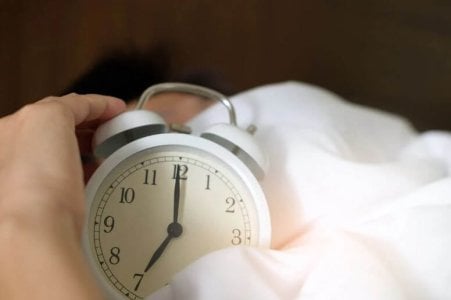Evidence suggests a startling connection between sleep medication and cognitive decline
- Replies 5
It's often said that sleep is the bedrock of good health – and as such, we go to great lengths to ensure it. Especially when some sort of sleep disorder or sleeping difficulty rears its head, we may turn to prescription or over-the-counter medications for help.
But as convenient as these medicines may be, some evidence suggests that they may be linked to cognitive decline.
So, do sleep medications increase dementia risk?
The link between sleep medication usage and cognitive decline was the subject of a research study published in 2021. The study examined data from more than 6,000 people aged 65 years and over, for a period of 8 years, probing the long-term health status of those who took sleep medications.
The authors of the study also accounted for differences in age, sex, marital status, education, or other chronic conditions that may have affected the participant’s risk of dementia.
Their findings were sobering – the 15 per cent of participants who used sleep meds routinely, AND those who used them on 'most nights' or 'every night', were 30 per cent more likely to develop dementia during the study period.
This is alarming, considering the millions of people who have sleep disorders, and the number of adults using sleep medicine to get a good night’s rest.
The authors of the study outlined some possible mechanisms driving the relationship between sleep aids and a decline in cognition. Firstly, a greater clearance of cellular waste occurs during sleep than waking hours – meaning that any disruptions in sleep or sleep quality may lead to a build-up of neurotoxic waste.
And while sleep medicine helps people fall asleep faster, it doesn’t necessarily mean that they get better sleep quality. Some medications are even said to disrupt your sleep architecture, which is the order of operations that occur in normal, healthy sleep.
However, the study is limited and does not fully explain the correlation between the two.
The researchers added that insomnia could possibly be a very early sign of dementia, one that an individual may experience before doctors can even detect and diagnose the syndrome’s onset. While this could possibly explain the link, there’s currently no further proof that supports this claim.
What science knows (so far) about curing dementia is little, but experts are certain that the protein amyloid beta that’s naturally found in the body is what causes cognitive decline. And to allegedly combat this, a drug called lecanemab was recently given conditional approval by the US FDA for use.
It was reported that the drug caused patients who have early-onset Alzheimer’s disease to have a slowed down rate of cognitive decline. However, this drug is also wrapped in its own controversy, which you can read more about here.
Some other possible signs of dementia (before any overt symptoms appear) are a combination of poor gait and a weak hand grip, according to research from Monash University. Over the span of nearly 5 years, the study examined 18,000 originally healthy adults in their 70s or older. It was reported that a slow walking pace and weak hand grip are two physical attributes associated with dementia. More details about this study can be found here.
It’s worth noting that not all sleep medication has a negative effect on the brain. For instance, magnesium glycinate – a combination of magnesium and the amino acid glycine – is said to improve sleep quality and sleep efficacy.
Some alternatives to sleep medication can improve your sleep quality, such as regular exercise or cognitive behavioural therapy.
Additionally, if you have trouble sleeping you can use sleep expert Olivia Arezzolo’s tips for ‘winding down’ after a long day:

What tips and tricks do you use to get a good night's sleep? Share your advice in the comments below!
But as convenient as these medicines may be, some evidence suggests that they may be linked to cognitive decline.
So, do sleep medications increase dementia risk?
The link between sleep medication usage and cognitive decline was the subject of a research study published in 2021. The study examined data from more than 6,000 people aged 65 years and over, for a period of 8 years, probing the long-term health status of those who took sleep medications.
The authors of the study also accounted for differences in age, sex, marital status, education, or other chronic conditions that may have affected the participant’s risk of dementia.
Their findings were sobering – the 15 per cent of participants who used sleep meds routinely, AND those who used them on 'most nights' or 'every night', were 30 per cent more likely to develop dementia during the study period.
This is alarming, considering the millions of people who have sleep disorders, and the number of adults using sleep medicine to get a good night’s rest.
The authors of the study outlined some possible mechanisms driving the relationship between sleep aids and a decline in cognition. Firstly, a greater clearance of cellular waste occurs during sleep than waking hours – meaning that any disruptions in sleep or sleep quality may lead to a build-up of neurotoxic waste.
And while sleep medicine helps people fall asleep faster, it doesn’t necessarily mean that they get better sleep quality. Some medications are even said to disrupt your sleep architecture, which is the order of operations that occur in normal, healthy sleep.
However, the study is limited and does not fully explain the correlation between the two.
The researchers added that insomnia could possibly be a very early sign of dementia, one that an individual may experience before doctors can even detect and diagnose the syndrome’s onset. While this could possibly explain the link, there’s currently no further proof that supports this claim.
What science knows (so far) about curing dementia is little, but experts are certain that the protein amyloid beta that’s naturally found in the body is what causes cognitive decline. And to allegedly combat this, a drug called lecanemab was recently given conditional approval by the US FDA for use.
It was reported that the drug caused patients who have early-onset Alzheimer’s disease to have a slowed down rate of cognitive decline. However, this drug is also wrapped in its own controversy, which you can read more about here.
Some other possible signs of dementia (before any overt symptoms appear) are a combination of poor gait and a weak hand grip, according to research from Monash University. Over the span of nearly 5 years, the study examined 18,000 originally healthy adults in their 70s or older. It was reported that a slow walking pace and weak hand grip are two physical attributes associated with dementia. More details about this study can be found here.
It’s worth noting that not all sleep medication has a negative effect on the brain. For instance, magnesium glycinate – a combination of magnesium and the amino acid glycine – is said to improve sleep quality and sleep efficacy.
Some alternatives to sleep medication can improve your sleep quality, such as regular exercise or cognitive behavioural therapy.
Additionally, if you have trouble sleeping you can use sleep expert Olivia Arezzolo’s tips for ‘winding down’ after a long day:
- Shut off technology: Blue light emitted by our phone’s devices disrupts our sleep.
- Take a shower before bed: It might not be for everyone, but taking a shower before bed is reported to increase melatonin production and stimulate blood flow. It is believed this occurs because your body temperature drops when you take a shower.
- Meditate or read a book: Try deep breathing exercises or read a book (if you want to!) to settle your thoughts and prepare your body for sleep.
Key Takeaways
- A recent study found that using sleep medications – both prescription and over-the-counter – is linked to a higher risk of dementia.
- The study authors outlined a few plausible mechanisms driving the connection between sleep aids and cognitive decline.
- Alternatives to medication, such as cognitive behavioural therapy and regular exercise, may help people get a better night's sleep without the risk of cognitive decline.
- Natural sleep aids, such as magnesium glycinate can improve sleep quality without the side effects of prescription and over-the-counter medications.









